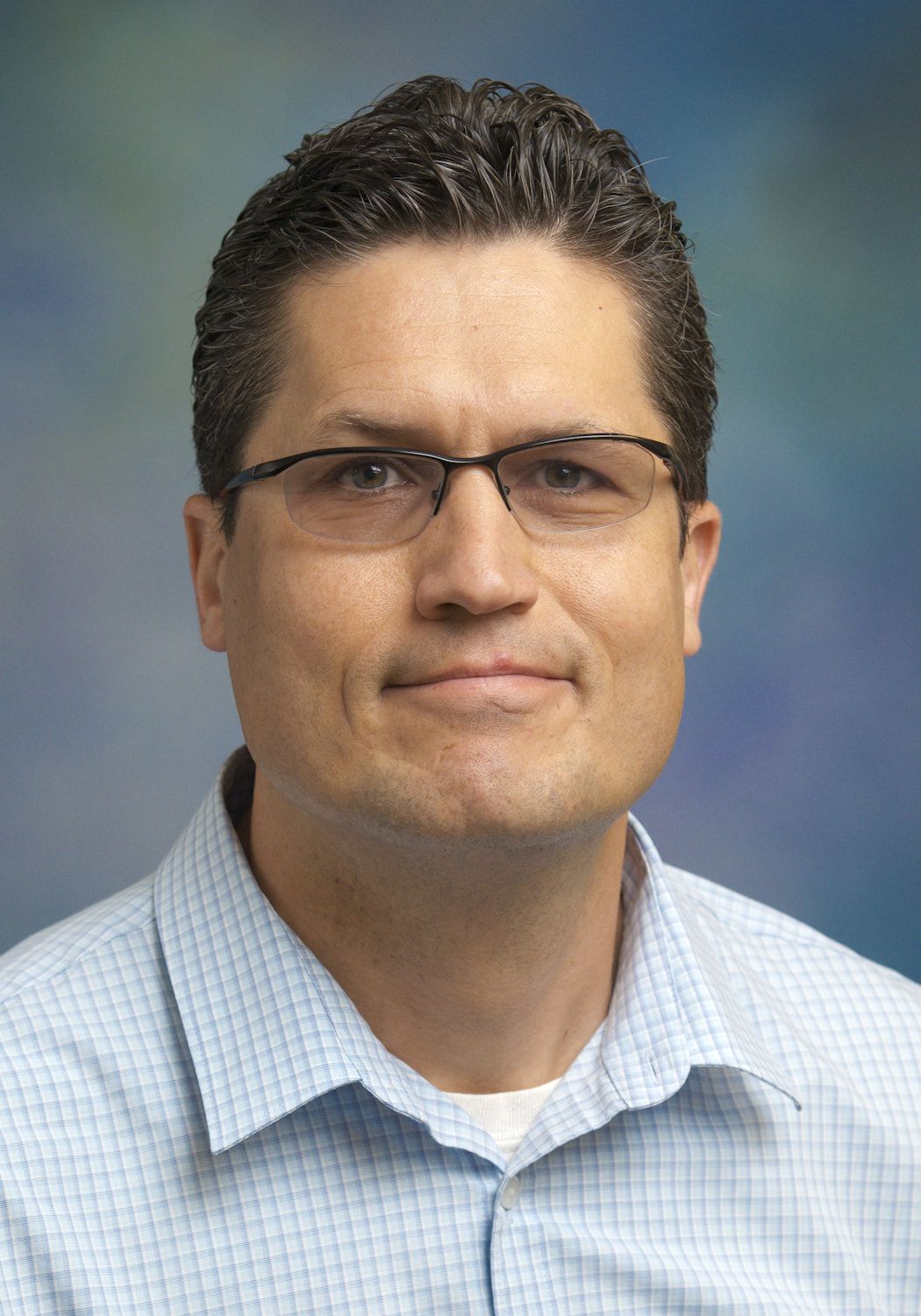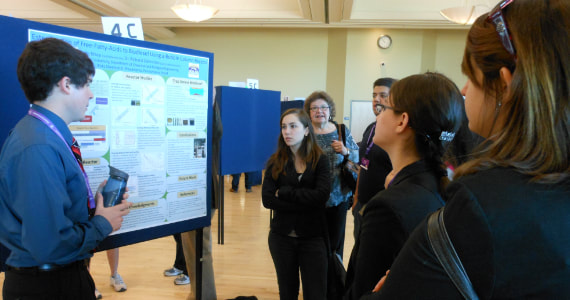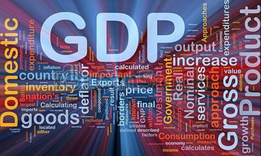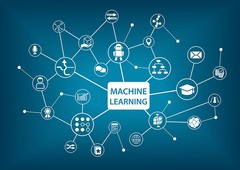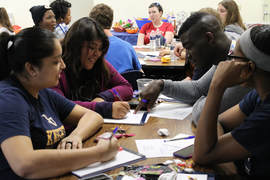What is Econ 194h, the honor thesis course?
|
Since 2009, I have been fortunate to be the instructor of ECN 194H, the Honor Thesis Course in Economics. ECN 194 is a unique course. It permits outstanding, committed and hard-working economics majors to complete an in-depth research project with a faculty supervisor over two quarters. The goal is to produce an original research paper, typically between 20 and 30 pages, but the length is less relevant than the quality. Typically this will involve thinking of a problem, reading many papers on it, translating it into a question, and an empirical strategy. Finding the data and performing the econometric analysis. No other course you took teaches you how to do this. This is research.
When you write a term paper, you read about the topic, summarize and critique the arguments, and show the professor that you understand the assigned materials. When you write a thesis, you become the expert. Your goal is to ask a new question, set up a strategy to answer it and implement it. In your thesis you will be teaching the reader and your supervisor, something. You will become more familiar with the specific topic than he is. Your research question should be interesting to you, this is your thesis, and answering your question will take many hours of work. We will help you to refine your question and make you more efficient at finding and analyzing research and data, but we will not give you a question—you must come up with your thesis question and write your thesis. |
Prerequisites
|
Entry into the Honors program requires all the following pre-requisites. No exception to these rules are allowed:
|
Selection Process: Interview and Replication of a Paper
|
In the summer before the the year you intend to enroll in the honor thesis you should begin your preparation and fulfill the very important preliminary requirement described below.
You should choose an empirical academic paper that is interesting to you published in the last 15 years in a top economic journal (among the following: American Economic Review, Quarterly Journal of Economics, Review of Economics and Statistics, Journal of Labor Economics, Journal of Population Economics, Journal of International Economics, Journal of Economic Growth, Journal of the European Economic Association, Economic Journal or comparable Journals) and show to me that you can understand it and replicate the main results. You need to identify this paper for replication in June of your Junior Year and by the end of June you need to meet with me for an interview. In this interview you need to show that you understand the paper, its main question, its core methods and the results. I will have a 20-30 minutes conversation with you in which I test your understanding of the paper and of the methods and I can decide (especially if there is a very large number of people who apply) that your level of understanding is not appropriate for this course and I will let you know. If I think your understanding is good, then I will give you the "go-ahead" to work in the summer at the replication. For the Replication in the Summer: You need to be able to identify a paper that you are interested in, find the data used, and reproduce the main results using STATA over the summer of your Junior year. I will be in touch with you throughout the Summer and I will evaluate the quality of your replication in a meeting in September before the Quarter of your Senior year begins. At that point if I see you worked hard, and you understood codes and econometrics to replicate the paper, I will provide the permission to Add the course and you will be enrolled. |
Stata Course
|
With the Help of several graduate students, currently Justin Whitshire a fouth year PHD in Economics, I developed a course in STATA for the Honor Students. It is mainly a practical overview of tools, basic commands and fundamental estimation techniques. This 4 lectures intensive course is offered each June of each year under my supervision, in collaboration with a Graduate Student Teaching Assistant. The course will be specifically and only for Honor Students, not necessarily those who will do the Thesis. The knowledge of STATA as statistical tool to analyze data is needed and very valuable in all social sciences and business and science application of statistics.
The outline and Syllabus of the current version of the Course developed in 2016-17 can be found below |
How to think about your research topic
|
How do you think about your thesis? Write out 1 or 2 questions that you want to answer and then begin
to outline answers. The first thing that should happen is that you realize you need to do some research, and this is where we can save you lots of time by referring you to literature, data, etc. Choose a question/topic you are very interested about. A thesis project is a specific question on the topic that you can turn into an empirical test (often into a regression). Many Theses deal with “causation” issues—what are the effects of allowing farmers to sell irrigation water on local economies? What is the effect of zoning laws on housing process? What are the consequences of closing a country to international trade? How have price controls on drugs affected innovations? Do not choose questions that deal with impacts in the future where there are no data, so it is hard to answer the question of how global warming will affect California’s economy unless we can find an analogous event in the past. You need to be specific in your question! Very good readings on the current research by economists are NBER working paper (http://www.nber.org/papers.html ), IZA discussion papers for applied papers (http://www.iza.org/en/webcontent/publications/papers). Also very helpful are journal presenting interesting reviews of recent important issues/topics in Economics such as the Journal of economic Perspectives (http://www.aeaweb.org/jep/index.php ), Economic Policy (http://www.economic-policy.org/ ) or the Annual Review in Economics (http://www.annualreviews.org/loi/economics/ ). Most of the data and literature you need is stored in computers somewhere, and the trick is to learn how to get to it as easily as possible. If you are looking for ideas, try reading the Economist, the Wall Street Journal, New York Times etc until you say—that’s an interesting question! |
High quality Papers that are very good examples of research projects
|
Read in Detail some of the following papers, to have an idea of what is a great paper, which
should use methods that you fully understand. The Colonial Origin of Comparative development The Long-term Effect of Africa Slave Trade The Effects of minimum Wage Discrimination Military Draft and Earnings Effects of De-Worming on Health and Productivity How valuable is schooling Abortion and Crime |
Opportunities to Present and discuss Your Research
|
During the Year and once you have finished your thesis you will have several opportunities to
discuss it with faculty and at workshop-Conference Presentations. The more important venues to discuss and present your thesis are the following: Coffee Hour with faculty During the Fall Quarter, as Students develop their ideas, start organizing their data and focus on a specific question, we organize together with the department of Agricultural and resource Economics, a joint even in which all faculty of the two departments meet the Honor students and chat with them informally about their research idea. This is a great opportunity to have feedback and get to know the faculty! See here the 2017-18 Brochure for the Coffee Hour Event. Winter Quarter ECON-ARE Workshop In March the Honor Thesis students are finishing their thesis. Together with the Agricultural and resource economics Honor Thesis students, we have a 2 day workshop in which student present their research to faculty. The format is a 20 minute seminar for each student. It is a great opportuntiy to have the faculty know about the final product of the research., Here is the brochure for the Final Thesis Presentation in 2017. Spring Undergraduate Research Conference In Spring of Each Year UC Davis organizes a conference in which undergraduate student can present their research. The Honor students in economics have always participated either with a session of presentations or with posters of their research. I have been moderator of the session and visitors of posters. Family and friends are invited to see the final product of research. Here is a link to the 2018 UC Davis, Undergraduate Research Conference. |
Honor Thesis written in 2018
Honor Thesis written in 2017
Honor Thesis written in 2016
Past Honor Students and their Current Positions
|
Name
|
Occupation
|
Linkedin
|
|
Brian Young (1994)
Peter Garadis (1994) Renos Vakis (1994) David O. Kritzberg (1995) David E. Mastagni (1996) Neeru. Paharia (1996) Francesca. Zaccheo (1997) Richard Wong (1997) Ivaylo Datchev (1997) Shawn DeArmond (1998) Catrine Galler (1999) Scott Levin (1999) Schyler Thiessin (1999) Lea Leonard (1999) R.J. Briggs (2000) Brian Buchholz (2000) Matt Kolbert (2000) Jeremy Guinta (2000) Philip Bonin (2000) Lindsay Crawford (2000) Chow, Samantha (2004) Andrew Danapoulos (2004) Maxime Belenkiy (2004) Vanessa Cordero (2004) Tatiana V. Gabor (2004) Nishan. Khoshafian (2005) Seth Russell (2005) Mariela Cedeño (2005) Marian Fernandez (2005) Julianne Deitch (2006) Karim Foda (2006) Hiep Nguyen (2006) Amir Avneri (2006) Cindy Chen Yu (2006) Michael Juanming Hui (2007) Francesco Luigi Poggesi (2007) Tolmino J Serafini (2007) Bo Sun (2007) Chris Knight (2007) Sangbum Brian Park (2007) |
Assistant Professor of English
Moorpark College, Ventura County, California Head of Product Marketing, Jemstep Invesco, San Francisco, CA Co-Head, Mind, Behavior, and Development Unit - eMBeD, The World Bank Washington D.C. Metro Area Data Scientist and Co-founder at Appian Data Services, San Francisco Bay Area Partner at Mastagni Holstedt, APC Sacramento, CA Assistant Professor, Georgetown University's McDonough School of Business, Washington District Of Columbia ales at Carpineto, Grandi Vini di Toscana Rome Area, Italy Associate Principal Scientist at Merck Kenilworth, NJ Co-Founder at APN LLC, Los Angeles, California Web Architect, UC Davis Associate at Arnold & Porter Kaye Scholer LLP Washington, DC Attorney at Drug Enforcement Administration Arlington, Virginia Senior Vice President, Head of Enterprise Risk Intelligence, San Francisco, CA Admissions Evaluator - Undergraduate Program University of California, Berkeley Haas School of Business Economist and Risk Modeler, On the Job Market Los Angeles, California Google Play Content Operations Programs Google, Mountain View, CA Co-Founder, Misfit, Sacramento, California Associate Director at Navigant Greater Los Angeles Area, CA Director of Sales - Strategic Enterprise Bay Area Tableau Software, Palo Alto, CA Head of People, Stumptown Coffee Roasters, Portland, OregonDirector of Finance at GoodData, San Francisco Senior Commodity Manager Silver Spring Networks, San Jose, CA Economist at U.S. Depatment of Commerce Washington DC Principal Partner Program Manager Salesforce, San Francisco, CA Product Insights Lead at Spotify, New York New York Account Associate at Pegasystems Greater Boston Area AGS Consulting at Adobe, San Francisco Bay Area Director of Business Development & Lending, Mandela MarketPlace, Oakland, California Associate Interest Rate Derivatives at Wells Fargo Securities, San Francisco Bay Area Doctoral Student at Columbia University Mailman School of Public Health, New York, New York Associate Fellow, The Brookings Institution Washington, District Of Columbia Business Development Manager, AuditBoard Orange County, California Area Sr. Sourcing Manager -- Indirect at Safeway / Albertsons, Pleasanton, Ca Research Scientist at EMD Millipore, Burlington, MA Associate at Littler Mendelson, P.C., San Francisco, California Experienced Economic Analyst, Berkeley Research Group LLC, Emeryville, CA Regulatory Operations Senior Associate, Ultragenyx, Novato, California Consultant at The Boston Consulting Group, SF Government/Econ Teacher at Albany High School Albany, CA Corporate Counsel at Hyundai Rotem Company Uiwang, Gyeonggi-do, Republic of Korea |
www.linkedin.com/in/brian-young-827a8b74/
www.linkedin.com/in/pj-garadis-1645b1/ www.linkedin.com/in/renos-vakis-87441421/ www.linkedin.com/in/davekritzberg/ www.linkedin.com/in/mastagni/ www.linkedin.com/in/neerupaharia/ www.linkedin.com/in/francesca-zaccheo-6a7151/ www.linkedin.com/in/richard-wong-54b8161/ www.linkedin.com/in/ivaylo-datchev-bbb11a61/ www.linkedin.com/in/shawndearmond/ www.linkedin.com/in/catrine-brown-5b29314/ www.linkedin.com/in/scott-levin-6a7134b/ www.linkedin.com/in/schyler-thiessen-8b67296/ www.linkedin.com/in/lea-leonard-95248753/ www.linkedin.com/in/r-j-briggs-a6aa6b57/ www.linkedin.com/in/brian-buchholz-442b5356/ www.linkedin.com/in/matt-kolbert-7aa9a64/ www.linkedin.com/in/jeremy-guinta-1ab20633/ www.linkedin.com/in/philbonin/ www.linkedin.com/in/lindscrawford/ www.linkedin.com/in/samantha-chow-9373418/ www.linkedin.com/in/andrewdanopoulos/ www.linkedin.com/in/maksimbelenkiy/ www.linkedin.com/in/vanessa-cordero/ www.linkedin.com/in/tatiana-gabor-34444b13/ www.linkedin.com/in/nishan-khoshafian-bb968a7/ www.linkedin.com/in/seth-russell-653a124/ www.linkedin.com/in/marielacedeno/ www.linkedin.com/in/marian-fernandez-77840831/ www.linkedin.com/in/juliannedeitch/ www.linkedin.com/in/karimfoda/ www.linkedin.com/in/hipsince85/ www.linkedin.com/in/amir-avneri-939b086/ www.linkedin.com/in/cindy-chen-56929b5/ www.linkedin.com/in/mikejhui/ www.linkedin.com/in/francesco-poggesi-1033a724/ www.linkedin.com/in/tjserafini/ www.linkedin.com/in/bosunnusob/ www.linkedin.com/in/chris-knight-77775816/ www.linkedin.com/in/sang-bum-park-53532683/ |
